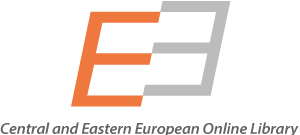LEGAL ANALYSIS AND COMPLIANCE OF THE LEGISLATION OF THE REPUBLIC OF CROATIA WITH INTERNATIONAL STANDARDS IN THE FIELD OF EXERCISING THE RIGHT TO EMPLOYMENT OF PERSONS WITH DISABILITIES
DOI:
https://doi.org/10.7251/FPNDP2405113LKeywords:
disability, reasonable accommodation, United Nations Convention on the Rights of Persons with Disabilities, employmentAbstract
The paper analyzes the national implementation of inclusivity in the Croatian labor market and access to employment for persons with disabilities through the lens of international, European, and national legal instruments. The key research question is whether the existing legal framework adequately protects and promotes the right to employment for persons with disabilities or requires adjustments to align with new labor market conditions. The research proposes pro futuro innovations in legal regulation de lege ferenda that could positively impact increasing employment opportunities for persons with disabilities.The United Nations Convention on the Rights of Persons with Disabilities (CRPD), in Article 27, obliges states to ensure the right to work for persons with disabilities on an equal basis with others, prohibiting discrimination, ensuring fair working conditions, and providing access to education, employment, and career development. It also requires the adaptation of workplaces, support in employment, and the promotion of self-employment, entrepreneurship, and cooperative development. The UN Committee on the Rights of Persons with Disabilities recommends a more rigorous approach to the inclusion of persons with disabilities in the public sector, the introduction of objective standards for employment and advancement based on merit, and increasing the number of persons with disabilities employed in public administration.The National Plan for Equalizing Opportunities for Persons with Disabilities of the Republic of Croatia (2021–2027) emphasizes the strategic promotion of the rights of persons with disabilities while respecting the principles of accessibility, universal design, and reasonable accommodation. The plan aims to make all areas of activity open and accessible to persons with disabilities, following global standards and contemporary trends. In this context, the paper offers proposals for improving the legal framework, focusing on measures that can enhance the employment of persons with disabilities and ensure their full integration into the labor market.
Downloads
Published
Issue
Section
License

This work is licensed under a Creative Commons Attribution-NonCommercial-NoDerivatives 4.0 International License.





